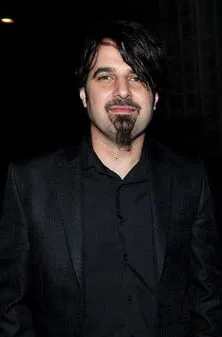‘No Artwashing Genocide’
Although festival head Alberto Barbera spoke out against ongoing war crimes in Gaza, he stated he has no intention of removing the films from this year’s lineup

Mehr Jan, American Muslim Today, Sep 10, 2024
Around 300 filmmakers, including Palestinian director Hany Abu-Assad, have voiced their objection to the Venice Film Festival’s decision to screen two Israeli films.

In an, the group criticized the festival’s choice, highlighting growing tensions within the global film community.
The letter stated, “As art and film workers around the world, we call for effective and ethical measures to hold apartheid Israel to account for its crimes and system of colonial oppression against Palestinians.
“We say that it is unacceptable that films made by production companies complicit in a regime engaged in continuous atrocities against the Palestinian people should be shown in Venice. The film festival should not [program] productions complicit in apartheid crimes, ethnic cleansing and genocide, regardless who perpetrates them and should refrain from doing so in the future.”
The artists concluded by condemning “the artwashing of Israel’s genocide on the international cultural stage” as “deeply immoral.
The protest specifically targets Dani Rosenberg’s Hebrew-language film “Al Klavim Veanashim (Of Dogs and Men),” which unfolds against the backdrop of the Oct. 7 attack in southern Israel by Iranian-backed Hamas militants, and Amos Gitai’s “Why War.”
“‘Of Dogs and Men,’ filmed during Israel’s current assaults on Gaza, attempts to cover up acts of genocide,” read the letter from Artists for Palestine Italia. It continued, “Similar to ‘Of Dogs and Men,’ the film ‘Why War’ was produced by Israeli companies that are complicit in apartheid, occupation, and now genocide, whether through their silence or their direct involvement in using art to sanitize these realities.”
During a news conference at the festival last week, Gitai defended his film, saying, “While the Israel-Palestine conflict is significant, the film is not centered on it.
“People often think of it as the world’s focus, but there is no single center. The world is round, and there are many important issues beyond just this one,” Gitai said.
 Although festival head Alberto Barbera has spoken out against the ongoing war crimes in Gaza, he stated that he has no intention of removing either Israeli film from this year’s lineup.
Although festival head Alberto Barbera has spoken out against the ongoing war crimes in Gaza, he stated that he has no intention of removing either Israeli film from this year’s lineup.
“I understand filmmakers signing a petition in support of Palestinians and the awful, painful position of the population there, especially the children,” Barbera said. “It’s hard to even think about it. What [Israel Prime Minister Benjamin] Netanyahu is doing in Gaza is a war crime, and so was Oct. 7.”
Jewish American Filmmaker Irks Zionists with Pro-Gaza Speech
 Meanwhile at the awards ceremony of the festival, Sarah Friedland, an American-Jewish director, while accepting the Luigi De Laurentiis Prize for Best First Film for her movie Familiar Touch, remarked, “As a Jewish American artist working in a time-based medium, I must acknowledge that I am accepting this award on the 336th day of Israel’s genocide in Gaza and the 76th year of occupation. It is our duty as filmmakers to use the platforms available to us to address Israel’s impunity on the global stage. I stand in solidarity with the people of Palestine and their fight for liberation.”
Meanwhile at the awards ceremony of the festival, Sarah Friedland, an American-Jewish director, while accepting the Luigi De Laurentiis Prize for Best First Film for her movie Familiar Touch, remarked, “As a Jewish American artist working in a time-based medium, I must acknowledge that I am accepting this award on the 336th day of Israel’s genocide in Gaza and the 76th year of occupation. It is our duty as filmmakers to use the platforms available to us to address Israel’s impunity on the global stage. I stand in solidarity with the people of Palestine and their fight for liberation.”

Jaffa-born filmmaker Scandar Copti, who earned an engineering degree from Technion, a state-funded Israeli university, received the Best Screenplay award in the Horizons section at the Venice Film Festival for his film Happy Holidays.
The movie portrays the intersecting lives of several characters in Haifa. In his acceptance speech, Copti said, “I am deeply honored to be here, but I am also profoundly affected by the difficult times we’ve been enduring over the last 11 months.
Our shared sense of humanity and morality has been put to the test as we witness the ongoing genocide in Gaza… This painful situation highlights the devastating impact of oppression, a key theme in our film. Our film examines how moral narratives can both bring communities together and blind us to the suffering of others.”
The cast and crew of the Tunisian film Aicha also made a powerful statement at the festival by displaying a bold protest. Standing united, they unfurled a banner reading “STOP THE GENOCIDE,” drawing global attention to the ongoing violence in Gaza amid the Israeli occupation. This symbolic gesture occurred just before their film’s world premiere in the Orizzonti section, which highlights new and emerging filmmakers.
Leave a Reply
You must be logged in to post a comment.